 Congress
was started in 1962 by Neil Galligan, the silent partner in Caprice Records and a former
General Manager at Canadian-American Records. In fact, the address of Congress in 1962 was the
same as Caprice, namely, 101 West 55th Street in New York City.
Congress
was started in 1962 by Neil Galligan, the silent partner in Caprice Records and a former
General Manager at Canadian-American Records. In fact, the address of Congress in 1962 was the
same as Caprice, namely, 101 West 55th Street in New York City.
Galligan started Congress by taking Linda Scott (pictured at right) from Canadian-American. At Congress she had some success starting in February, 1962, with "Yessiree"/"Town Crier" [Congress101, #60/#116]. During the summer of 1962, she had her biggest Congress hit with "Never in a Million Years" [Congress 103, #15], and followed that in September with "I Left My Heart in the Balcony" [Congress 106, #74]. Congress released one album by Linda Scott, arranged by Robert "Hutch" Davie, who also was a part of the staff at Caprice. By 1963, when Gerry Granahan of Caprice and Neil Galligan had their break up and Caprice folded, Galligan wound up with singer James Ray, who put out several additional singles on Congress.
Galligan managed to release 11 singles and one album in 1962-63 before the label was sold. Besides Linda Scott and James Ray, the following artists has singles on Congress during the pre-Kapp years: Hutch Davie, the Bracelets, Dick Haymes, Jenny Lee & the Starlets, and Phil Brito.
In August, 1963, Galligan sold Congress to Dave Kapp, and it became a subsidiary of Kapp Records. Galligan stayed with the label as national sales manager and Hutch Davie remained head of A&R. The 45 numbering started over with number 200, but the album numbering remained the same. Kapp released over 70 singles and three albums on the label from 1963-1966, including two more singles by Linda Scott that "Bubbled Under" in 1963-64.
 The biggest hitmaker for the Kapp incarnation of Congress was New York vocalist Shirley Elliston (aka
Shirley Ellis, shown at left), who by herself accounted for seven of the singles (10%) and two of the three
albums released by Congress/Kapp. In November, 1963, she started with a Lincoln Chase-penned hit
called "The Nitty Gritty" [Congress 202], which made #8 on the pop charts and #4 on the R&B chart. Her
next two releases showed a precipitous slide down the charts, however. "(That's) What The Nitty Gritty
Is" [Congress 208] was a carbon copy of "Nitty Gritty" that only reached #74 pop and #14 R&B in
February, 1964, followed by "Shy One" [Congress 210], which only reached #130 pop and #43 R&B
three months later. The Lincoln Chase classic "Such a Night" [Congress 231] followed, but it didn't chart
at all. Such goes many a career in pop music, and it usually ends right there.
The biggest hitmaker for the Kapp incarnation of Congress was New York vocalist Shirley Elliston (aka
Shirley Ellis, shown at left), who by herself accounted for seven of the singles (10%) and two of the three
albums released by Congress/Kapp. In November, 1963, she started with a Lincoln Chase-penned hit
called "The Nitty Gritty" [Congress 202], which made #8 on the pop charts and #4 on the R&B chart. Her
next two releases showed a precipitous slide down the charts, however. "(That's) What The Nitty Gritty
Is" [Congress 208] was a carbon copy of "Nitty Gritty" that only reached #74 pop and #14 R&B in
February, 1964, followed by "Shy One" [Congress 210], which only reached #130 pop and #43 R&B
three months later. The Lincoln Chase classic "Such a Night" [Congress 231] followed, but it didn't chart
at all. Such goes many a career in pop music, and it usually ends right there.
But in December, 1964, defying the odds, she vaulted back into the top-5 on both the pop and R&B charts with her biggest hit, "The Name Game" [Congress 230], another Chase novelty that had everyone singing it and making up verses. It reached #3 pop and #4 R&B. Another pop top-10 song followed in March, 1965, "The Clapping Song (Clap Pat Clap Slap)" [Congress 234], which topped out at #8 pop and #16 R&B. Going to the "game song" well again proved to be one time too many, as "The Puzzle Song" [Congress 238] in late May struggled to #78 and then died. Three more Shirley Ellis singles failed to make it above #130. By 1967, after Kapp had deactivated Congress and sold it to MCA, Shirley Ellis signed with Columbia, where she enjoyed one more trip to the R&B top-40 with "Soul Time" [Columbia 44021, #67 pop/#31 R&B].
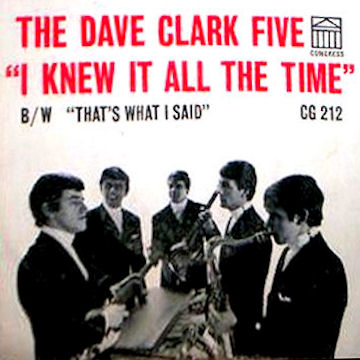 Other than Linda Scott and Shirley Ellis, Congress had but one other chart single during the Kapp era.
When the British Invasion hit in January, 1964, record labels here were scrambling for British acts.
Congress' parent label, Kapp, snared the Searchers, but didn't seem to be in the running for other
groups. For Congress, they went back and leased a single the Dave Clark Five had put out in England
over a year earlier, "I Knew It All the Time" [Congress 212], which hadn't even charted in the UK when it
was released, but it reached #53 here on the group's name and picture sleeve alone (it didn't sound
much like the "Glad All Over" band, truth be told).
Other than Linda Scott and Shirley Ellis, Congress had but one other chart single during the Kapp era.
When the British Invasion hit in January, 1964, record labels here were scrambling for British acts.
Congress' parent label, Kapp, snared the Searchers, but didn't seem to be in the running for other
groups. For Congress, they went back and leased a single the Dave Clark Five had put out in England
over a year earlier, "I Knew It All the Time" [Congress 212], which hadn't even charted in the UK when it
was released, but it reached #53 here on the group's name and picture sleeve alone (it didn't sound
much like the "Glad All Over" band, truth be told).
Other artists with singles on Congress during the Kapp years included James Ray, Johnny Knight, the Initials, the V.I.P.s, Carolyn Brent, the Elgins, Larry Michaels, David Hutchins, Ritchie Adams, Los Moyas, Margie Bennett, the Squires, Robert Davie [Hutch Davie], Vicki Hill, Freddie Briggs, Angelo & the Initials, Art Grayson, Tammy St. John, the Motions, J.B. Love, Dean Christie, the Renegades, Frankie Cherval, the Compliments, the Halos [the Angels], the Scott Bedford IV, Peter Dayton, the 7th Avenue Aviators, Hugh McCracken, Patty & the Emblems, John Summers, Carson & Gaile, Doug Sheldon, Chico Rio, Susie Houston, Gino Washington, Tawney Reed, Andre Brasseur, and J.B. Quagmire.
Kapp Records continued using the Congress name into 1966 when it was deactivated. In December, 1967, Dave Kapp sold his labels, including Congress, to MCA.
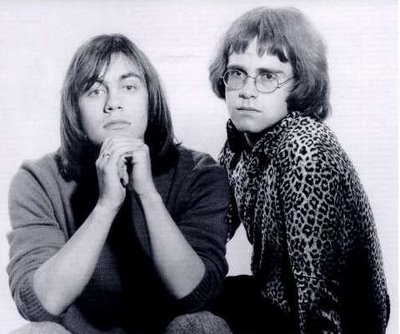 Initially, MCA chose not to use Congress. But starting in 1969, and lasting for about a year, MCA
revitalized the Congress label and issued 23 singles and one album.
Initially, MCA chose not to use Congress. But starting in 1969, and lasting for about a year, MCA
revitalized the Congress label and issued 23 singles and one album.
The most famous artist on the Uni/MCA version of Congress was one who didn't have much success on the label: Elton John. In the late 1960s, after lyricist Bernie Taupin and musician Reg Dwight (aka Elton John) had formed a songwriting partnership, they worked writing easy listening songs for other artists. John started recording their songs for the DJM label in England in 1968. The second of these, "Lady Samantha," was released here on Congress 6017 as the first Elton John single released in America. Elton John's second single here, "Border Song", was initially issued as Congress 6022 in 1970 (the final Congress single release). About that time, MCA decided to discontinue the Congress imprint and move its artists into its other labels. The Elton John single was moved to Uni 55246. This Uni reissue was Elton John's first chart record in the US. Had the Congress label survived, it would have had one of the most successful artists of all time.
The only chart hits the "new" Congress label had were by a British group called the Flying Machine. The Flying Machine had been formerly called Pinkerton's Assorted Colours, and had no connection with the American group of the same name that included James Taylor. Their first single on Congress, and the first single on the "new" MCA/Uni Congress label, "Smile a Little Smile for Me" [Congress 6000], was released in September, 1969, and went to #5 on the pop charts and #6 on the Adult Contemporary chart. Oddly enough, it didn't chart in England, and Congress didn't get the rights to the album, which was issued on Janus Records, a joint venture between the US-based GRT and the UK-based Pye Records (ergo, the two-faced "Janus"). Their followup, "Baby Make It Soon" [Congress 6012], released in January, 1970, only reached #87.
The only album issued on the post-Kapp Congress Records was a J.J. Jackson project called The Greatest Little Soul Band in the Land. After one single under that name, the second and final single was issued credited to J.J. Jackson. Neither charted, nor did the album. Other artists with singles in the Congress 6000 series included Tommy Vann, the Four J's, Majority of One, Travis Wammack, Gil Deonda, Tomorrow's Men, Helena Ferguson, Duane Eddy, Darrow Fletcher, Argosy, Dyna Might, Sandy & Dick, Kent Morrill, Carol Dunn, and Billy Wade McKnight.
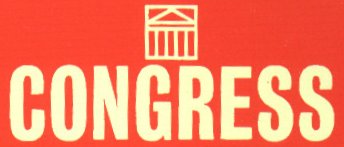 Congress Album Discography
Congress Album Discography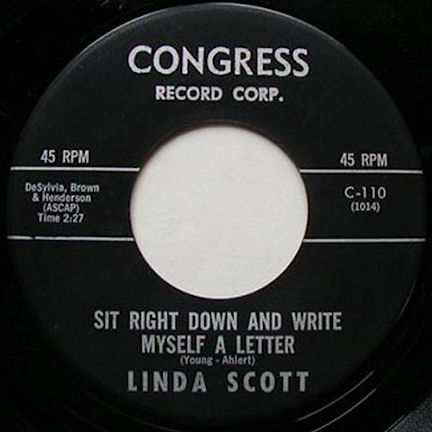
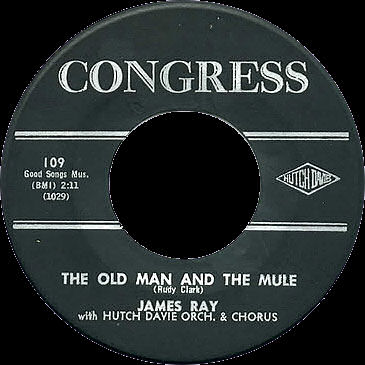
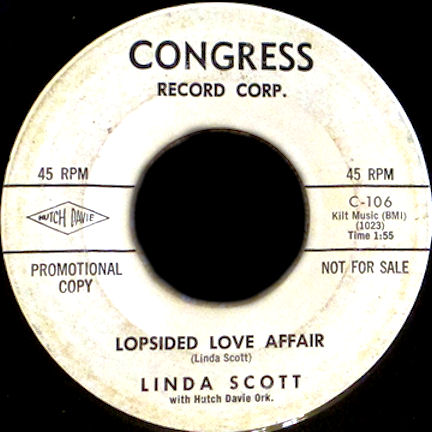
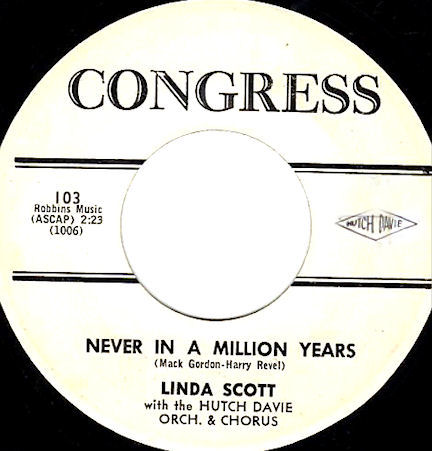


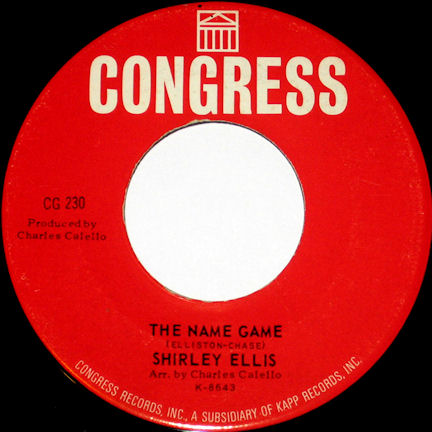
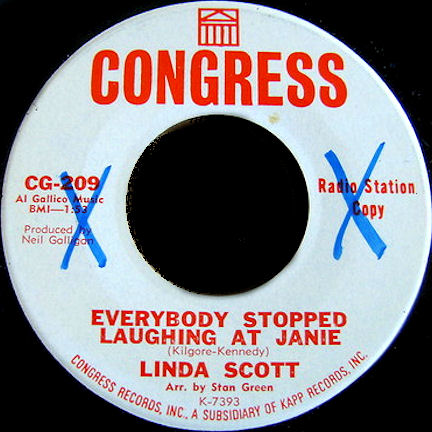
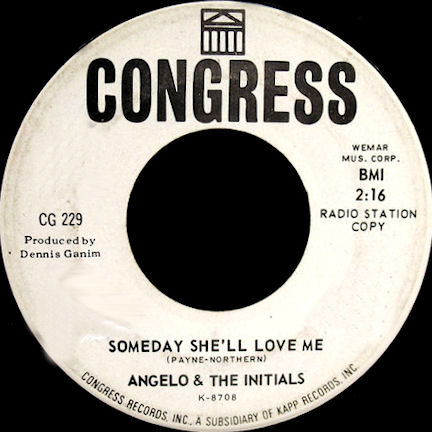
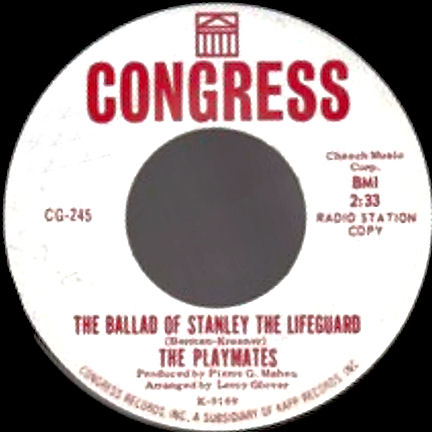

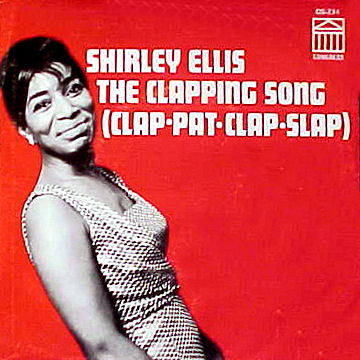

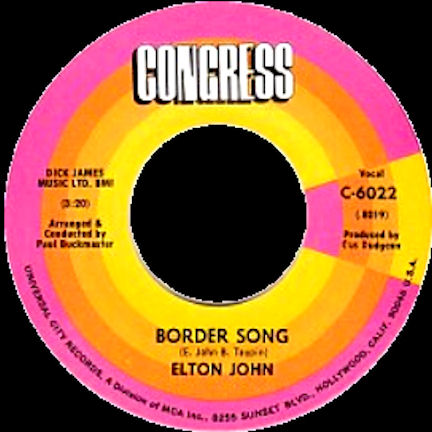
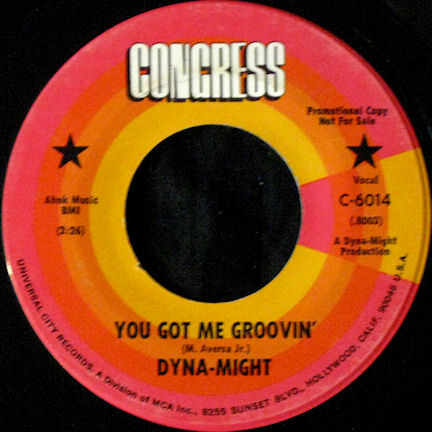
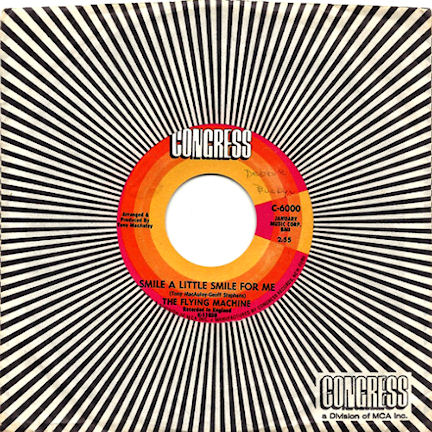
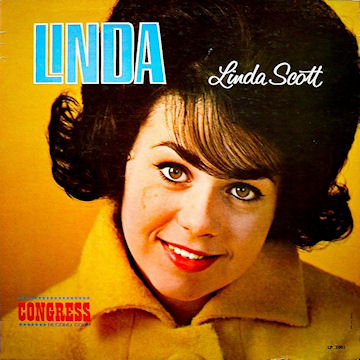
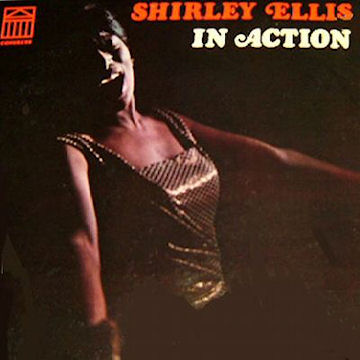
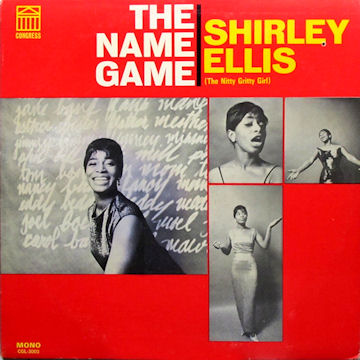
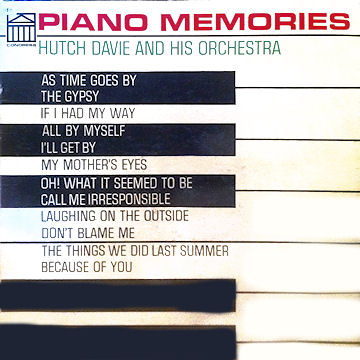
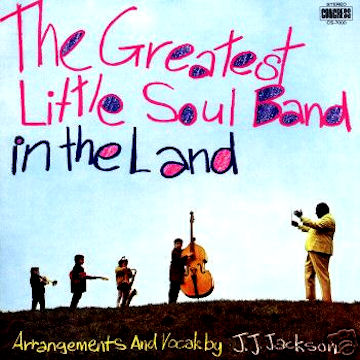
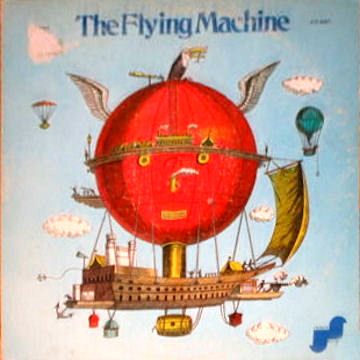
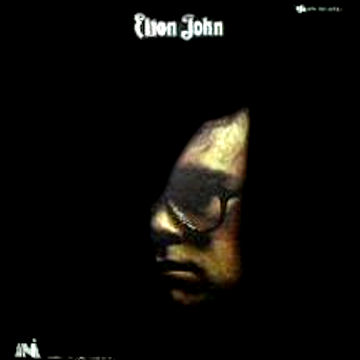
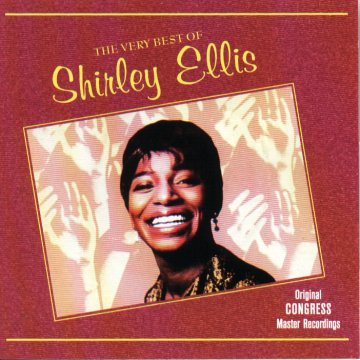
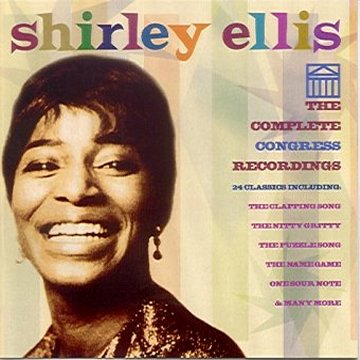
 Back to the Discography Listings Page
Back to the Discography Listings Page